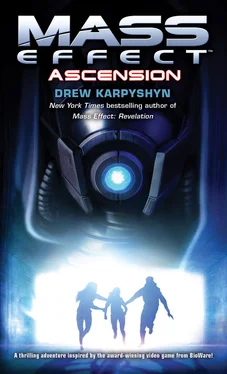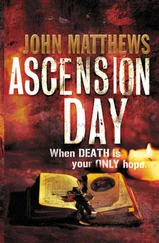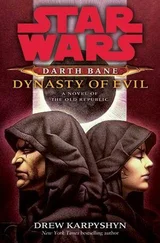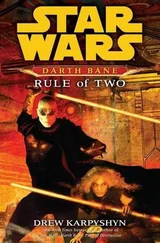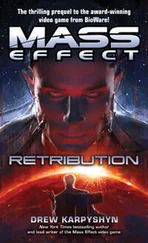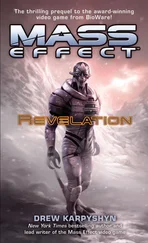"Do you have to go?" she asked.
He shook his head. "Isli and her team will greet them. We can continue our business."
"And what exactly is that business?" Hendel said, casting tact and decorum aside. Kahlee couldn't blame him; she was about ready to do the same thing. Fortunately, Mai seemed willing to be completely candid.
"The Migrant Fleet is dying," he said flatly. "It is a long, slow, almost invisible death, but the facts are undeniable. We are nearing a time of crisis for our species. In another eighty or ninety years, our population will be too large for our ships to support."
"I thought you had zero population growth," Kahlee said, remembering Seeto describing the universally enforced policies of birth control during one of her tours of the lower decks.
"Our population is stable, but the Fleet is not," the captain explained. "Our ships continue to age and break down faster than we can replace or repair them. Little by little we are running out of livable space, yet neither the Conclave nor the Admiralty are willing to take action. I fear that by the time they finally realize something drastic must be done, it will be too late to stem the tide."
"What does that have to do with me?" Kahlee wanted to know. "Why were they asking me all those questions about the geth and Reapers?"
"There is a small but growing coalition of ship captains who believe we must take immediate action if the quarian nation is to survive," Mai explained. "We have proposed that several of the Fleet's largest vessels be equipped for long-distance voyages. We want to send them on two- to five-year journeys into uncharted regions of space or through unexplored mass relays."
"Sounds dangerous," Hendel noted.
"It is," Mai admitted, "but this could be our only hope to secure the long-term survival of the quarian species. We need to find life-bearing, uninhabited worlds we can call our own. Or, failing that, we need to find some way to return to the Perseus Veil and reclaim our home from the geth."
"Do you really believe you'll find one of these so-called Reaper ships somewhere on the fringes of unexplored space?" Hendel asked.
"I believe it is better than doing nothing, and waiting for our numbers to begin an irreversible decline."
"Seems logical," Kahlee admitted. "So why is there so much opposition to sending out these ships?"
"Our society is extremely fragile," Mai explained. "The smallest change can have huge repercussions. Sending away several of our larger vessels will weaken the Fleet as a whole, at least until they return. Most of the representatives in the Conclave are not willing to take that risk.
"Their caution is understandable," the captain admitted. "For nearly three hundred years the Admiralty and the Conclave have fought to protect what little we have from crumbling away. They had no choice but to adopt careful and conservative policies.
"Those policies served us for a time," he continued, "but now we need to adapt. We need new policies if we are to survive. Unfortunately, the weight of tradition hangs heavily over the Fleet, and there is a widespread fear of change.
"That is why your testimony before the representatives was so important, Kahlee," he added. "We need to win others over to our cause, to make them see that taking a risk is our best chance to survive. Even if we don't find the Reapers or discover a way to drive the remaining geth from the Perseus Veil, we still might find new worlds we can settle."
"But my testimony was meaningless," Kahlee objected. "It was all speculation and maybes. I don't know anything useful about the geth or the Reapers. And I never said sending ships into the uncharted void would help you find them."
"That's beside the point," Mai explained. "People believe you have knowledge that can defeat the geth; it doesn't matter if you really do. You have become a symbol of hope for the future among our society. If other captains see you allied with me, it will win support to our cause. That is why those who oppose us want to see you leave the Idenna."
"Leave?" Hendel said worriedly. "You mean they're kicking us out of the Fleet?"
"They won't do that," Mai assured him. "It would turn you into martyrs for my cause, drumming up even more support for those of us who advocate change.
"But there are many captains who oppose us," he continued. "Several have offered to give you sanctuary on their vessels, should you choose to leave the Idenna. They believe if you travel with them, it will gain support for their side."
"I don't like being a political pawn," Kahlee muttered darkly.
"I understand," Mai said sympathetically, "and I am sorry I have put you in this position. If you really don't want to be involved, you are free to leave the Fleet."
Kahlee frowned. Leaving the Fleet wasn't an option; not while Cerberus was still looking for them.
"Please, Kahlee," Lemm added. "Sending out the exploration ships is the best hope for my people to survive."
Lemm probably could have gotten her to agree simply by saying she still owed him for saving them on Omega. But Kahlee had learned enough about quarian culture to realize he would never try to force her like that. Still, she did owe him. And Mai's arguments made sense to her.
Before she could answer, however, they heard the distant but unmistakable sound of the Idenna's shipboard alarms.
"We're about to find out if your information is reliable," Golo whispered as the Cyniad's nav screens showed several patrol frigates breaking off from the main body of the Migrant Fleet.
The quarian shuttle was packed with ten highly trained Cerberus commandos, along with Golo, Grayson, and a pilot trained to fly the quarian modified vessel. Everyone on board was wearing a full combat hard-suit equipped with kinetic dampeners, and they each carried a heavy assault rifle.
"Open the hailing channel," Golo instructed, and the Cerberus pilot did as he was told. Grayson was technically in charge of the mission, but for much of it he would be deferring to Golo and his greater understanding of the quarians.
A few seconds later the radio crackled with the challenge of the quarian patrols. "You are entering a restricted area. Identify."
"This is the scout ship Cyniad, of the Idenna," Golo responded, "seeking permission to rejoin the Fleet."
"Verify authorization."
Grayson held his breath as Golo recited the code phrase. "My body travels to distant stars, but my soul never leaves the Fleet."
Several seconds passed before they got their response. "Idenna confirms your identity. Welcome back, Cyniad."
Golo flipped off the comm channel. "Bring us in nice and slow," he instructed the pilot. "We don't want to spook anyone."
Locating the Idenna amid the armada of ships was surprisingly simple. Every vessel in the Fleet transmitted a short-range homing signal on a unique frequency. As a scout ship, the Cyniad was preprogrammed with the Idenna's frequency, so that the vessel showed up as a green pixel on the nav screen, in contrast to the red of the other ships.
As they drew close, Golo opened the comm channel again. "This is the Cyniad, requesting permission to dock with the Idenna. "
There was a delay of several seconds before the radio crackled with, "This is the Idenna. Your request is granted. Head to docking bay seven. And the captain says it's good to have you back."
"It's good to be back," Golo replied. "Better send a security and quarantine team," he added, before clicking the comm channel closed.
"A security team?" Grayson asked, suspicious.
"Standard protocol," Golo replied. "If I didn't request one, they'd get suspicious."
"Will they be armed?"
Читать дальше
